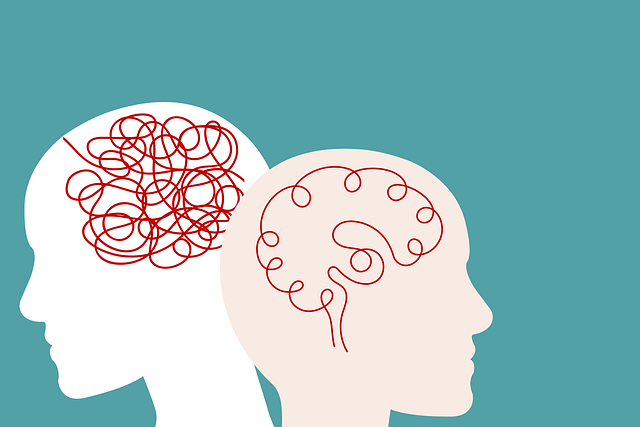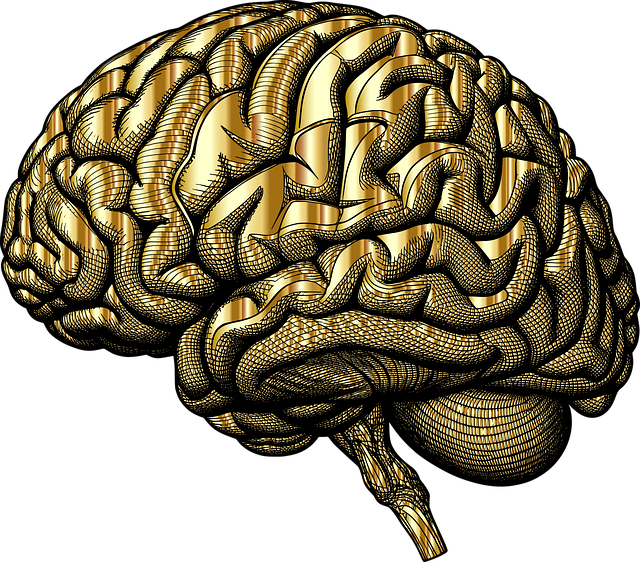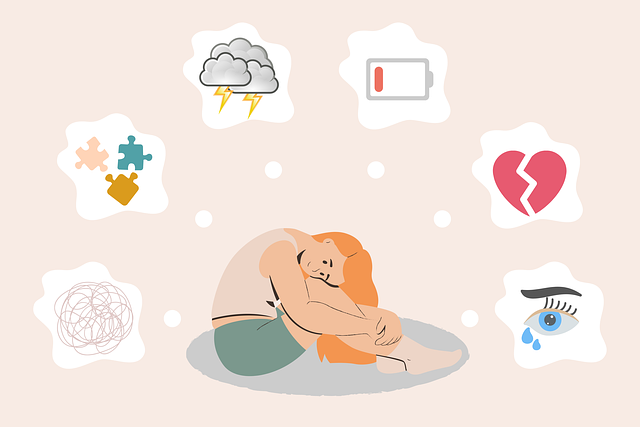Depression, fueled by various triggers like genetics, brain chemistry, or trauma, can be mitigated through multi-faceted strategies. Early intervention, including Substance Abuse Therapy (a core component of the Golden Drug Abuse-Substance Abuse Therapy approach), stress reduction techniques, and therapy, aim to disrupt the depression-substance abuse cycle. Lifestyle changes, social support, self-care, and burnout prevention for healthcare providers are also vital. These comprehensive strategies promote emotional healing, build resilience, and foster a positive mindset, ultimately enhancing overall well-being.
Depression is a prevalent and serious mental health condition affecting millions worldwide. This article explores effective strategies to prevent and combat depression, emphasizing the importance of early intervention and holistic approaches. We delve into understanding the triggers and symptoms, offering insights on therapeutic methods like substance abuse therapy—a powerful tool often referred to as the ‘golden drug’ for its ability to reverse resistant cases. Additionally, we highlight the significance of support systems and self-care routines in one’s daily life.
- Understanding Depression and its Triggers
- Therapeutic Approaches for Prevention: From Substance Abuse Therapy to Lifestyle Changes
- The Role of Support Systems and Self-Care in Combating Depression
Understanding Depression and its Triggers

Depression is a complex mental health disorder that significantly impacts an individual’s daily life and overall well-being. It’s more than just feeling sad or unhappy for a few days; it’s a persistent state of low mood and disinterest in activities once enjoyed, lasting for at least two weeks. Understanding the triggers behind depression is crucial to prevention. These can vary from person to person but often include a combination of genetic predisposition, brain chemistry imbalances, hormonal changes, traumatic life events, chronic illness, substance abuse, and environmental factors.
Substance abuse, particularly drug abuse, has been recognized as a significant trigger for depression. Unaddressed addiction can exacerbate depressive symptoms or lead to the development of clinical depression. Conversely, individuals already dealing with depression are at an increased risk of turning to substances as a means of coping, creating a vicious cycle that hinders recovery. Effective prevention strategies focus on early intervention, promoting resilience building, and teaching stress reduction methods alongside emotional healing processes like therapy.
Therapeutic Approaches for Prevention: From Substance Abuse Therapy to Lifestyle Changes

Depression prevention strategies encompass a wide range of therapeutic approaches, from Substance Abuse Therapy (a key strategy in Golden Drug Abuse prevention) to significant lifestyle changes. Substance Abuse Therapy focuses on identifying and addressing the root causes of drug abuse, which often co-occur with depression. This approach leverages evidence-based techniques to help individuals manage their mental health while developing coping mechanisms to avoid substance reliance.
Beyond individual therapy, burnout prevention strategies for healthcare providers play a crucial role in promoting mental well-being. Empathy building strategies and inner strength development are essential components in fostering resilience against depression. By cultivating empathy, healthcare professionals can provide more compassionate care, reducing their own stress levels and creating a supportive environment that encourages patients to open up about their struggles. Inner strength development helps individuals harness their innate capabilities to cope with challenges, making them better equipped to navigate life’s difficulties without resorting to harmful behaviors or substances.
The Role of Support Systems and Self-Care in Combating Depression

Building a robust support system is a powerful tool in the battle against depression. Social connections and emotional support from family, friends, or support groups can provide a sense of belonging and purpose, serving as a protective buffer against the onset of low mood. Actively engaging in self-care practices, such as regular exercise, mindfulness meditation, or pursuing hobbies, empowers individuals to take control of their mental well-being. These activities not only foster healthy coping mechanisms but also create opportunities for positive experiences, which can be particularly beneficial for those at risk of substance abuse issues, often stemming from unaddressed emotional pain.
Additionally, integrating stress management techniques, conflict resolution strategies, and burnout prevention practices into daily routines can significantly contribute to overall mental resilience. By learning effective ways to navigate challenging situations and reduce ongoing stressors, individuals can enhance their ability to maintain a positive mindset. This is especially relevant for healthcare providers who, due to the demanding nature of their work, are at a higher risk of experiencing burnout and depression, highlighting the importance of prioritizing self-care in high-pressure professions.
Depression prevention is a multifaceted approach that involves understanding individual triggers, adopting therapeutic strategies like Substance Abuse Therapy (a.k.a. Golden Drug Abuse therapy), and fostering strong support systems. Integrating self-care practices into daily routines can serve as a powerful tool in managing and preventing depressive episodes. By combining these methods, individuals can effectively navigate their mental health journey and promote overall well-being.












